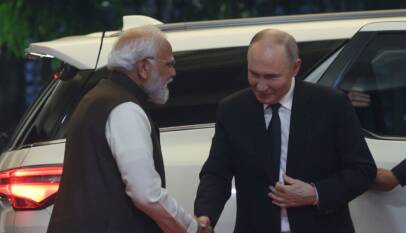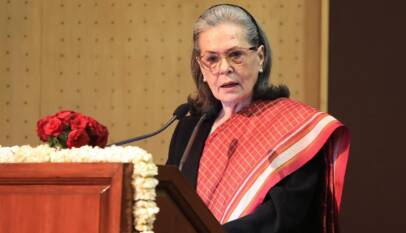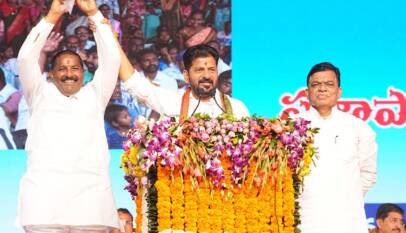Community Building
Written by Suvro Sanyal.
Community Building is the process of creating or enhancing a community among individuals within a regional area like a neighbourhood or with a common need or interest.
A wide variety of practices can be utilised for community building, ranging from simple events like potlucks and small book clubs, to large–scale efforts such as mass festivals and building construction projects that involve local participants rather than outside contractors.
Activists and community workers engaged in community building, efforts in industrialised nations where the apparent loss of a community in these societies resulting due to social disintegration and the emergence of many harmful behaviours. They may see building community to address perceived social inequality and injustice, individual and collective well-being, and the negative impacts of otherwise disconnected and/or marginalised individuals.
Leadership, geography, history, socio-economic status are depicted to explain success of community and its well-being. A community’s well-being is dependent on the quality of relationship among the citizens of that community.
Regardless of the type of community that is formed, it is possible to perform community-building and make a difference. The way that community-building takes place varies and depends on the factors & activities that communities use to strengthen themselves.
Community Building Activities – are group activities that help people relax, get comfortable, move around, and become at ease with each other. They help break down psychological barriers between people. and can be done in various ways, but the most common methods include organising events, initiating joint projects, networking, and supporting each other.
Building a strong community can have many benefits; it helps in creating a sense of belonging and connection among members. This can lead to increased social interaction and engagement, as well as making members feel welcomed. Additionally, a close-knit community can be a great resource for information and help.
Impact of Baha’u’llah in building communities:
The mid-nineteenth century was a time of a new awakening in the life of humanity. Throughout Europe, Latin America, China, India, and North America, one after the other, peoples arose to overthrow oppressive political and social systems. It seemed like human consciousness was awakening out of a long night of passivity and submission.
Everywhere there was a yearning for a new vision for society based on justice, equality, and the nobility of the human being. The sense that the dawn of a great age was at hand was captured in the words of the poets of the time. As Rabindranath Tagore wrote, “The call has come to every individual in the present age to prepare himself and his surroundings for this dawn of a new era when man shall discover his soul in the spiritual unity of all human beings.”
At such a time, unknown to most of the world, the sun of a new message from God arose in Iran with the appearance of Baha’u’llah, God’s messenger for humanity coming of age. Baha’u’llah taught that there is one God, that all religions came from the same God and were true in essence and that the time has come for the unification of humanity.
The life of Bahá’u’lláh was characterised by the same superlative qualities that distinguished the earthly lives of the Founders of the other great religions. Born in Iran in 1817 into the family of a wealthy nobleman, from his early childhood Bahá’u’lláh showed uncommon wisdom and his qualities of kindness, generousity and justice were without peer. After the death of his father, he was offered a high position in the court of the king, which he politely refused, preferring instead to dedicate his time towards helping the oppressed, the sick and the poor.
When Bahá’u’lláh proclaimed His mission in the middle of the nineteenth century as the Prophet Founder of a new religion, His teachings were revolutionary for the vision of modernity that they unveiled. His central principle—that the time had come for the oneness of humankind to be realised—was supplemented by a host of social teachings such as the equality of women and men, the harmony between science and religion, the need for the independent investigation of the truth, the abolition of priesthood, the abandonment of all forms of prejudice, and universal education.
His teachings provoked a hailstorm of opposition from the ecclesiastical and political orthodoxy of the time that was steeped in a medieval mindset. The Shia clergy of Iran along with two of the most powerful courts of the time—the King of Iran and the Ottoman Empire—did everything in their power to extinguish His influence. Bahá’u’lláh was stripped of all his wealth, was tortured, beaten, imprisoned in chains, and was exiled four times from country to country until He passed away in 1892 in the Ottoman Empire’s penal colony of Acre (Akko in today’s Israel).
Despite His appalling sufferings, Bahá’u’lláh continued in His mission revealing over a hundred volumes of sacred texts for humanity’s guidance. He had unconquerable Faith in the nobility that humanity could rise to and no amount of pain or sacrifice could deter Him from sowing the seeds of that transformation which would allow humanity to achieve its true destiny.
During His lifetime, Bahá’u’lláh’s influence grew despite the opposition of His enemies. Wherever He was exiled, thousands were drawn to His teachings and by the love, power, and majesty of His Person. Today His Faith has spread to every corner of the world with more than six million followers and millions of others drawing inspiration for building a united world from His life and words.
The Cambridge orientalist Edward Granville Browne met Baha’u’llah shortly before he had breathed his last. He was bedazzled by his posterity, which had encouraged him to pen portrait:
“The face of him on whom I gazed I can never forget, though I cannot describe it. Those piercing eyes seemed to read one’s very soul; power and authority sat on that ample brow … No need to ask in whose presence I stood, as I bowed myself before one who is the object of a devotion and love which kings might envy and emperors sigh for in vain!”.
With a firm conviction in the nobility of the human being, Baha’is believe that the betterment of society requires the systematic and sustained nurturing of the capacities and qualities inherent to the individual. Education is the process that allows the vast potentialities of every individual to be harnessed for the upliftment of society. To contribute to true prosperity, education must address both the spiritual and the material dimensions of human existence.
At the centre of the community building activities that the Bahá’ís are engaged in, are educational programs aimed at building the spiritual and intellectual capacities of the individual for a lifetime of service to the common good.
- Children – Classes for the spiritual education of children are held in diver’s settings focusing on the development of spiritual qualities and the beliefs, habits and patterns of conduct that enrich a person spiritually.
Such scenes which are at abundance, unfolds across India every week as local youth, men and women arise to open their homes and serve as teachers of classes for the moral and spiritual education of children in their own neighbourhoods.
In the classes, rather than focusing on just knowing about ‘right’ and ‘wrong’, emphasis is placed on the development of spiritual qualities and the beliefs, habits and patterns of conduct that enrich a person spiritually. Efforts are made to cultivate a consciousness among a larger swathe of the population in each neighbourhood or village so that all of the members of the community can work together to reinforce what the children are learning.
- Young Adolescents – throughout the country participate in groups in a program that helps them develop spiritual perception and a moral framework for making decisions. They develop their power of expression and channel their abundant energies into service to their communities.
The Baha’i community recognises the period of youth as a special period in the life of an individual, potentially the springtime of human life. If young people’s burgeoning intellectual, spiritual and physical capacities are channelled towards social transformation during this phase of life, both communities and the youth themselves can realize their true potential.
A special kind of preparation is required during the junior youth years, a period of rapid change between the ages of 11 to 14, when young people are leaving behind childhood and advancing towards maturity. These young adolescents, termed ‘junior youth’, have many new questions and aspirations during this time of life. While this age group is often projected as problematic and described in negative terms, the junior youth program is built on an understanding of the potential of this age group for altruism, eagerness to learn about the universe, a strong sense of justice and enthusiasm for working towards the betterment of the world. To assist this group to navigate this period full of challenges and possibilities, a program for the spiritual empowerment of junior youth is being offered worldwide by the Baha’i community.
- Youth and Adults – through a decentralised educational process, youth and adults in villages and neighbourhoods of cities throughout the country are developing the intellectual, moral, spiritual and practical capacities for rendering service to their communities.
At the heart of the cross-cultural community building endeavours initiated by the Baha’i community throughout the world, is a decentralised educational process that builds capacities of youth and adults to initiate various programs and activities necessary for building a vibrant and prosperous community life. This educational process is offered in small, informal groups called study circles. The curriculum of these study circles, which is based on the words of God, aims to foster intellectual, moral, spiritual, and practical capacities of people of all backgrounds. They consist of a series of courses which aim to build capacities for offering various acts of service to the community such as teaching classes for the spiritual education of children, organising devotional meetings, and tutoring study circles.
As the community building process in each neighbourhood or village intensifies, the friends involved in the building process are intimately drawn into the social and material concerns facing the population. They find in the spiritual teachings of the Baha’i Faith, certain insights and principles, that they begin to address issues they face in areas such as the promotion of the equality of women and men, the environment, health, agriculture, and education. Once consciousness is raised about such issues, groups of friends with a shared vision developed through participation in study circles, junior youth groups and collective worship begin to undertake efforts for the betterment of their community.
Although varied in their areas of endeavour, and level of complexity, what such efforts of social action have in common is a vision of helping humanity progress spiritually and materially, a belief in the oneness of humankind and the principle of justice, a focus on building the capacity of all people to participate in the generation and application of knowledge for the betterment of their own communities, and an approach characterized by learning in action through cycles of consultation, study, action and reflection.
The Baha’i community of India has a rich history of participating in the discourses on the equality of women and men, socioeconomic development, the role of clergy less religion in society, child rights and youth and social transformation.
To be continued………………………………

Suvro Sanyal
Mavericknews30 has launched a series of articles on community building, sharing insights and success stories. Stay tuned for the next article as we explore how to create stronger, more connected communities!
Log on : www.mavericknews30.com
Follows us on : Twitter @mavericknews30
YouTube : @MarvickNews30
PM Modi Presents Russian President Putin with Curated Gifts Reflecting India’s Culture and Heritage
New Delhi, Dec 2025: During the two-day visit of Russian President Vladimir Putin to India…




















